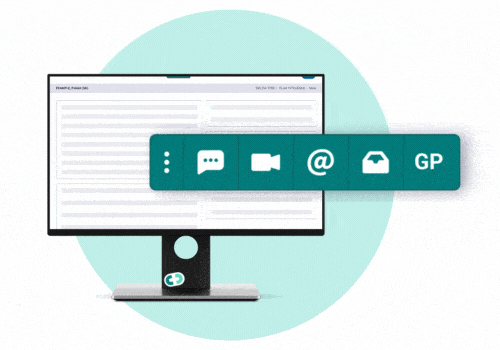Patient access to GP records by 2015
- 21 May 2012

Providing patients access to their online records by 2015 is one of the few specific commitments in the government’s newly released NHS information strategy.
Many GPs remain unconvinced of the benefits of giving people access to their records, and are concerned that this will create more work for practices when patients ring up to question what they have read online.
However, the strategy predicts just a “modest” time investment by GP practices that will lead to significant increases in productivity that “far outweigh the initial investment."
The government has committed to all patients having secure online access to their GP record by the end of this parliament.
The information strategy says this means that by 2015, all general practices will be expected to provide electronic booking and cancelling of appointments, ordering of repeat prescriptions, electronic communication with the practice and online access to their record to anyone who wants it.
Although more half of GPs in England have systems which can provide electronic access to records, fewer than 1% offer the service.
The uptake for offering transactional services is much higher, with 70% of GPs using a system that offers it – and 30% using the functionality.
The strategy says patients will be able to see which practices offer online access to records by 2013 on the NHS Choices website.
The strategy talks about the promotion of health literacy and says organisations have a duty to provide “appropriate support to enable everyone to understand and take proper advantage of all these services."
It fails to go into detail regarding what this support will entail, but says for a “modest investments of time”, GPs should see benefits such as fewer “ad hoc contacts with some patients”, a reduction in staff time spent on administering repeat prescriptions; and fewer missed appointments.
“Where there are high quality, low cost alternatives to face-to-face contact with our health and care professionals then, increasingly, we [patients] should have the choice to use them,” it says.
The overall vision is for patients to have online access to letters, test results, personal care plans and needs assessments, with access to GP records as the first step.
“Some GPs may decide that they can only provide online access to records and to attached letters from a specific date onward, rather than to give access to historical information,” the strategy says.
The Royal College of General Practitioners, working in partnership with patient groups and other professional organisations, has been asked to lead the development of a plan, policy and procedures to support this goal.
As well as accessing their GP record, providers should make existing shared and patient-held records – such as maternity record and parents’ Red Book – electronic and accessible to patients online.
All local authorities are also encouraged to provide clients the choice of accessing their assessment and care plan information online “as soon as IT systems allow."
The strategy says feedback on the Department of Health’s information strategy consultation, ‘Liberating the NHS: An Information Revolution’, and the work of the NHS Future Forum showed it was clear that patients want online access to their personal records and transactional services.
“Significant benefits” for patients include the ability to; identify mistakes in records, better manage their health and care; and share records with other professionals involved in their care.
The strategy predicts an expansion of use of electronic records to become a “main vehicle for providing information on health and care outcomes and status, rating our experience of care, and leaving feedback and comment."
It encourages providers and suppliers to be innovative in the use of technology to allow patients to be more involved in their own care.
Examples include: enabling service users to enter information into their care records including self-assessed test results; feedback on treatment progress; and updating demographic information.
Those working in IT and information should treat the provision of patient records access with equal importance as the need to share information electronically between clinicians, it says.
The DH, NHS Commissioning Board and Public Health England will work on issues such as identification and authentication of patients and service users and ways for patients to share electronic copies of their records with people and organisations of their choice.




